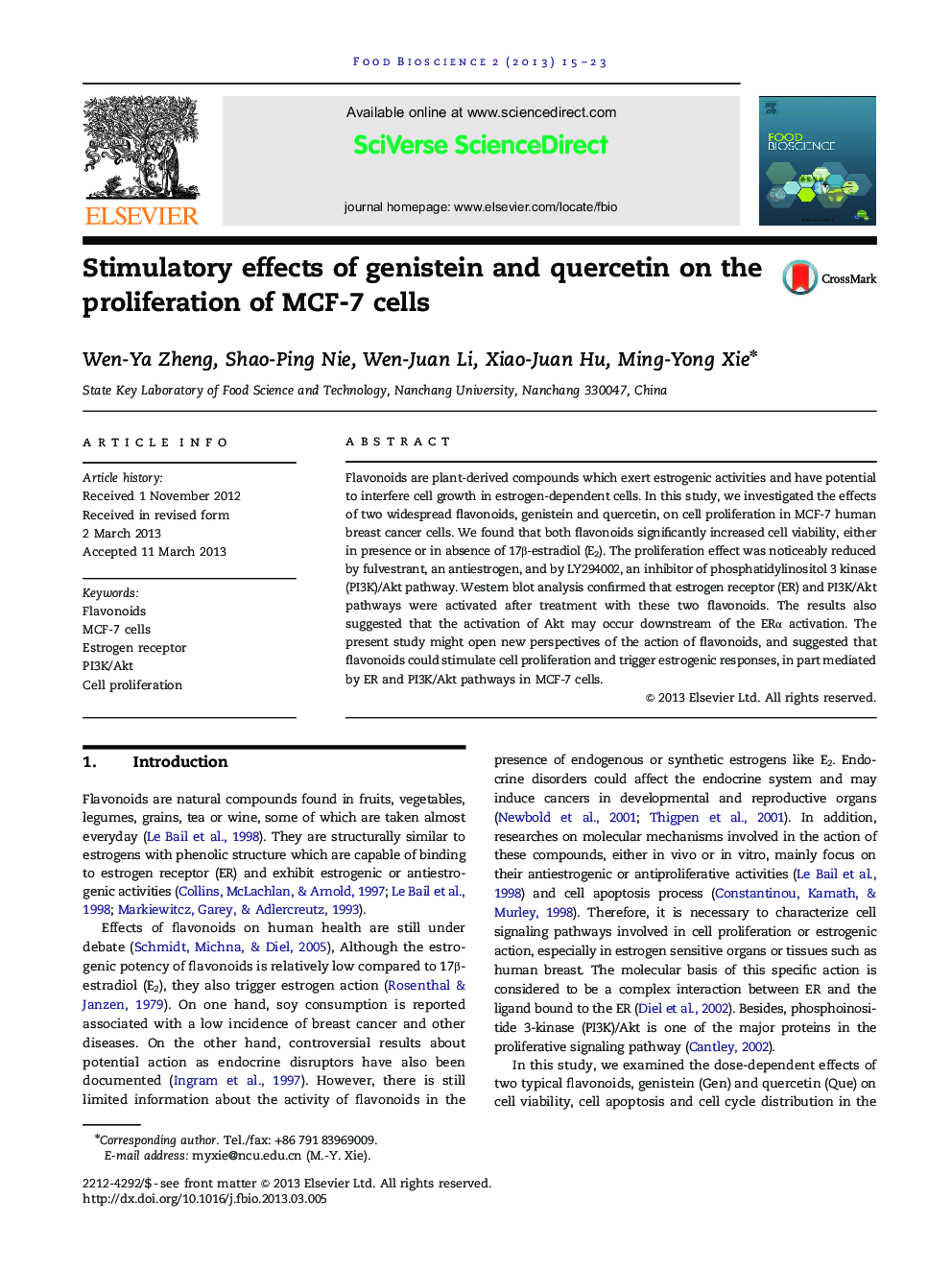| Article ID | Journal | Published Year | Pages | File Type |
|---|---|---|---|---|
| 19764 | Food Bioscience | 2013 | 9 Pages |
•Gen and Que increased cell viability in MCF-7 cells, either with or without E2.•Gen and Que with E2 induced inhibition of cell apoptosis.•Gen and Que with E2 promoted cell distribution to G2 and S phases.•ER and PI3K/Akt pathways were activated after treatment cells with Gen and Que.•The activation of Akt may occur downstream of the ERα activation.
Flavonoids are plant-derived compounds which exert estrogenic activities and have potential to interfere cell growth in estrogen-dependent cells. In this study, we investigated the effects of two widespread flavonoids, genistein and quercetin, on cell proliferation in MCF-7 human breast cancer cells. We found that both flavonoids significantly increased cell viability, either in presence or in absence of 17β-estradiol (E2). The proliferation effect was noticeably reduced by fulvestrant, an antiestrogen, and by LY294002, an inhibitor of phosphatidylinositol 3 kinase (PI3K)/Akt pathway. Western blot analysis confirmed that estrogen receptor (ER) and PI3K/Akt pathways were activated after treatment with these two flavonoids. The results also suggested that the activation of Akt may occur downstream of the ERα activation. The present study might open new perspectives of the action of flavonoids, and suggested that flavonoids could stimulate cell proliferation and trigger estrogenic responses, in part mediated by ER and PI3K/Akt pathways in MCF-7 cells.
